All Stories
-
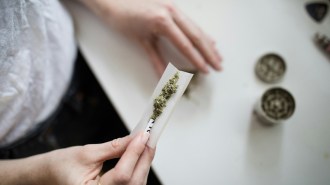 Health & Medicine
Health & MedicineChemicals in marijuana may affect women’s fertility
THC in marijuana may help eggs become ready for fertilization. But this may come at the cost of more eggs with wrong numbers of chromosomes.
-
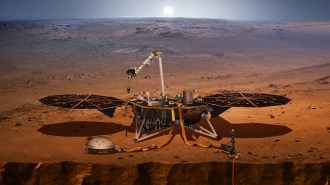 Planetary Science
Planetary ScienceSeismic waves suggest Mars has a solid heart
NASA’s InSight lander listened to Marsquakes for four years. The tremors revealed that Mars may have a solid inner core.
-
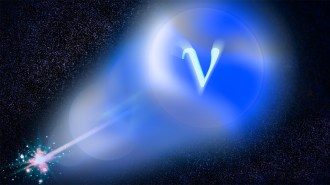 Particle Physics
Particle PhysicsThis laser would shoot beams of neutrinos, not light
The subatomic particles called neutrinos are famously elusive. But an unconventional trick could make a laser beam of the aloof particles.
-
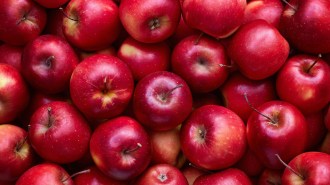 Neuroscience
NeuroscienceYour red is my red, at least to our brains
Despite philosophical debates, colors like red may spark similar brain activity across individuals, new research suggests.
-
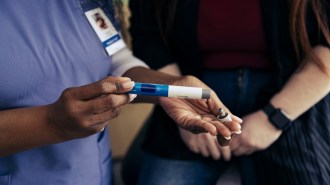 Health & Medicine
Health & MedicineDrugs like Ozempic might lower cancer risk
GLP-1 medications like Ozempic, Wegovy and Mounjaro might lower people’s risk of developing certain cancers, especially ones linked to obesity.
By Meghan Rosen -
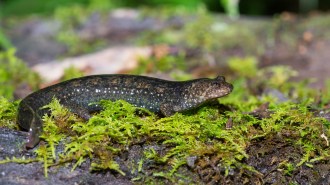 Animals
AnimalsJust like humans, many animals get more aggressive in the heat
From salamanders to monkeys, many species get more violent at warmer temperatures — a trend that may shape their social structures as the world warms.
-
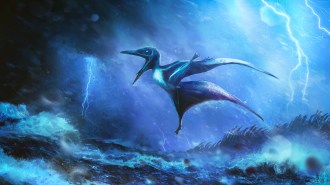 Paleontology
PaleontologyYoung pterosaurs probably died in violent Jurassic storms
Two hatchling pterosaurs with fractured arm bones point to ancient storms as the cause of mass casualties preserved in Germany’s Solnhofen Limestone.
-
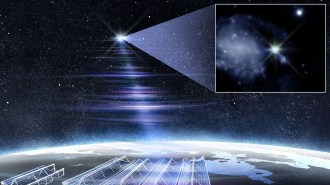 Astronomy
AstronomyAstronomers detect the brightest ever fast radio burst
The fast radio burst came from 130 million light-years away. That proximity allowed an in-depth search for what produced the mysterious signal.
-
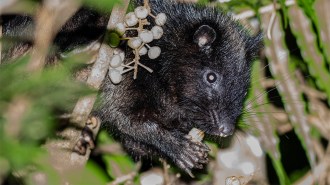 Animals
AnimalsTiny thumbnails may be key for rodents’ global takeover
Thumbnails might have boosted rodents’ food-handling skills, helping them thrive worldwide.
-
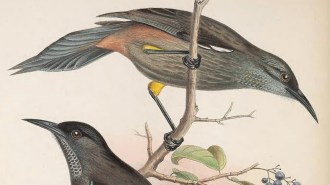 Life
LifeA sixth mass extinction? Not so fast, some scientists say
A new analysis suggests that recent extinctions have been rare, limited mostly to islands and slowing. But others argue this is all just semantics.
By Jake Buehler - Animals
Here’s how fruit flies’ giant sperm squeeze into tight spaces
Researchers found that fruit fly sperm push against one another and align in orderly bundles, preventing knots that could block reproduction.
By Meghan Rosen -
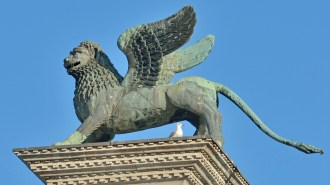 Archaeology
ArchaeologyVenice’s iconic winged lion statue originated in ancient China
European artisans turned a Tang Dynasty tomb guardian sculpture into a symbol of medieval Venetian statehood, researchers say.
By Bruce Bower